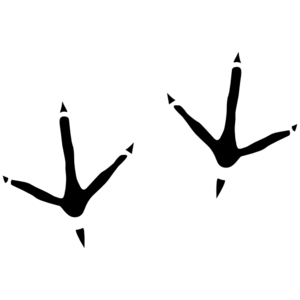Two months ago...
In the semi-arid land of Al-Ard —known as the Land in the native tongue— a contested territory of two major forces in the Median sub-continent. Two forces on the opposite side face each other in a soon-to-be battlefield.
Northern medianites call it The Land because it is the only land that matters in the northern Median subcontinent.
The Land, marked by its vast stretches of dry earth and sporadic oases, would become a battle of immense importance. A clash between two rivaling Emirs—Emir Khanadi and Emir Yuza—both kings in the tongue of Median, each vying for control over the strategic Al-Ard region. This arid land was coveted for its precious water sources and its potential as a key trade route of the northern coast.
Every good and merchandise from the distant continent of Essen docked in port-city Bahari was transported through Palm Route in The Land to all over the trade cities in the Western hemisphere.
Palm Route was a bustling trade route, one of the trade cities was Darusalin where merchants from all corners of the realm gathered in the holy city Darusalin to do their business. This convergence of commerce made Darusalin the ultimate trading and holy city, renowned for its bustling marketplaces and spiritual significance.
in addition to the rising numbers of new converts in Lua Light from the land of the Andal—words of the Medianites for the Wessen continent— for the last twenty years that made the pilgrimage in the Palm Route has become more packed than it used to be.
Over the last two decades, business and trade have flourished, transforming the Palm Route into a coveted pathway, anyone who control the Palm Route would become The Emir of Emirs in Median.
Forces come and go.
Civilizations of ancient fought for control over the city of Darusalin, an ancient city of three major religions in the Wessen and Median—Chedaism, Church of Aione, and Lua Light.
The city's unique traits made it the eye of the world—the center of attention of the whole realm. The city was located in the northern part of The Land, near the Neck, a narrow land between Wessen and Median.
Kings fought over Darusalin for power and wealth. Folks fought over Darusalin for faith and belief.
Holy wars were waged for the span of more than three hundred years by the Wessen realm against the Median. The holy war was over for a hundred years or so.
and this time...
Amidst the shifting sands of Median, a transformation was underway that would alter the very fabric of its military landscape. Once, the Emirs had taken pride in nurturing and expanding their own armies, molding them like a blacksmith shaping a blade. But over time, a subtle lethargy seemed to creep in. The Emirs grew complacent, their ambitions dulled by an insidious comfort.
No longer did they invest the same fervor in the growth of their own forces. Instead, the allure of mercenaries had taken hold. These hired warriors, the Jinns, known for their steadfast loyalty, emerged as the sought-after solution to the Emirs' military challenges. In a land where honor and loyalty were held in high regard, the mercenaries of Median stood as the epitome of reliability.
It was not just the Emirs who recognized the value of these devoted fighters. Even beyond the borders of Median, kings and lords sought the services of these battle-hardened souls. The land of the Andal, a distant realm with its own pale-skinned populace, was regulars to these renowned mercenaries. Their reputation for loyalty became a badge of honor, a rarity in a world where allegiances could change like the shifting desert sands.
While in the heart of the Median, warriors had honed their skills to a razor's edge, bound not just by contracts, but by an unbreakable code. Kings of distant lands had come to rely on these skilled warriors to safeguard their dominions and fight their battles. It was a testament to the respect and trust that the mercenaries commanded, a trust that transcended boundaries.
For the Emirs, the embrace of mercenaries was not without its implications. The once-intimate connection between ruler and soldier shifted, replaced by a transactional relationship. Soldiers who were once fellow countrymen, united by a common homeland, now shared a banner for the duration of a contract. While their loyalty to coin was steadfast, questions lingered about the depth of loyalty to their employers' cause.
As the Emirs and Kings of the Andal increasingly turned to these warriors-for-hire, the traditional model of raising armies and fostering a sense of unity evolved. The familiar faces of the homeland fighters were replaced by a patchwork of foreign soldiers, brought together by a shared trade rather than shared values. A mosaic of languages, customs, and allegiances now adorned the battlefield.
Yet, the mercenaries brought an undeniable strength. They brought not only their skills but a reputation for reliability that was unmatched. The Emirs found themselves entrusting these locals and outsiders hired swords with the defense of their realm, and even kings from far-off lands saw fit to secure their kingdoms with the aid of these warriors.
In the end, the embrace of mercenaries was both a strategic choice and a statement about the changing nature of warfare. The Emirs sought victory through their expertise, trading the toil of raising armies for the efficiency of hired swords. It was a gamble, a wager on loyalty and skill over tradition and unity.
As the sun continued to cast its golden light over the shifting dunes, the true impact of this shift in strategy would only become clear with the tides of time.
The two banners that fluttered in the wind told the story of the conflict. Emir Khanadi, determined to solidify his rule over The Land, rallied his forces under the banner of yellow, while Emir Yuza led his army under the fierce red banner. The atmosphere was tense as the two rival forces faced each other across the harsh terrain, the tension mirroring the longstanding rivalry between the Emirs.
Aden, 21 years old, a young skilled Jinn—one of the most elite mercenary groups in Median—served in the ranks of Emir Khanadi's army. His heart burned with excitement as he stared at the sea of yellow banners around him, all decorated with a burning fist as the sigil of his Emir's ambitions.
Aden and each soldier of the Khanadi army were wearing yellow war garb over standard Median light armor with a round funny-looking helmet which was only worn by the Khanadi Emir's army.
Aden adjusted his funny-looking helmet which looked like a chamberpot. He never got used to it's weight. It made his neck stiff because he was with the cavalry and all he did was stand his ground on horseback, watching the battle ensued as he waited for the order from the commander of the cavalry.
In front of Aden's eyes, the battle lines were drawn with infantry as the vanguard forming the backbone of both armies, accompanied by skilled archers in the middle and swift light cavalry by the rear flank.
The dry heat of the land bore witness to this clash of power.
both opposing armies showed up in full force, five thousand infantry and archers with a thousand light cavalry in Emir Khanadi's army while the opposite side, Emir Yuza, had a thousand infantry and archers with four hundred orcs infantry. Unfortunately, the Yuza's army didn't have any more cavalry left.
The odds were not in Yuza's favor, as his military forces had been reduced to just one-fifth of Khanadi's army. However, Emir Khanadi yearned for the war to end quickly, while Emir Yuza was determined to make one last desperate effort.
As the rivaling Emirs prepared for battle, the winds of war seemed to favor Emir Khanadi. His forces already secured vital water sources and oases, ensuring their stamina and mobility. The initial clashes saw Khanadi's soldiers gaining ground, his light cavalry proving to be formidable, and their tactics skillfully outmaneuvered the opposition.
Emir Khanadi held a numerical advantage, his forces outnumbering those of Emir Yuza. The ranks of light cavalry in Khanadi's army were particularly impressive, a sight to behold as they formed a formidable wave ready to charge.
From the dusted hill overlooking Emir Yuza's army, Aden's horse appeared to be agitated, its eyes wide and flicking back and forth as if something had been unsettling it since their departure from camp.
"Easy, Himar. easy boy," Aden tapped and stroked his battle horse, calming it from the unseen distress.
suddenly they heard rumbling in the distance and then they felt a tremor under their feet, not long after followed by the earth shaking violently.
The horses neighed. all riders worked hard to calm their horses. Everyone tried to not fall into the ground.
"Earthquake!" soldiers screamed out.
"Stand your ground!" Captain Akim relayed the commander's order as the earthquake occurred.
In the distance, the enemy orcs' infantry army was also making anguished noises, yet they managed to remain composed despite their fear. It was a remarkable sight watching these intimidating and formidable orcs tremble in terror.
The dust rose in the air from the army and their soon-to-be battlefield. This was yet another earthquake in a series of earthquakes that had been happening for the past month, the tremors becoming more and more powerful with each occurrence.
It was a brilliant psychological warfare tactic against Yura's army, as their infantry was mostly composed of orcs who had a long and complicated history with earthquakes. Rumor had it that their world had been destroyed by an immense series of quakes they'd never before witnessed.
They had been forced to migrate to this realm as their own world was becoming increasingly uninhabitable.











Comments (0)
See all